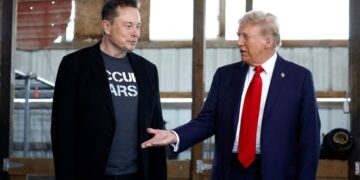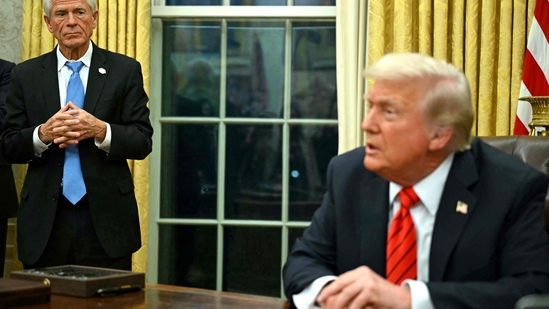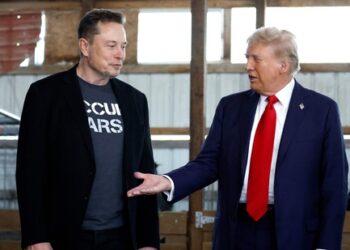Artificial Christmas trees, tinsel, ornaments, and other festive decorations from China have been caught in the crossfire of the US-China trade war, with Chinese producers reporting a worrying drop in orders from their American buyers. The reason, they say, is clear: US President Donald Trump’s aggressive tariff measures.
A recent Reuters report highlights the impact of these tariffs, which have risen by a staggering 104 percent on Chinese imports. This policy, crafted under the influence of economist Peter Navarro, is aimed at curbing China’s dominance in global manufacturing. However, it is also disrupting long-standing business relationships. US retailers source nearly 87 percent of their Christmas decorations from China, amounting to roughly $4 billion in trade annually. In turn, Chinese factories rely on the American market for about half of their sales.
“So far this year, none of my American customers have placed any orders,” said Qun Ying, who owns a Christmas tree manufacturing unit in Jinhua, eastern China. She confirmed that the delay is due to the new tariffs. “By mid-April, all the orders are normally finalised, but right now it’s hard to know if any orders are coming,” she said. “Maybe American customers won’t buy anything this year.”
The ongoing trade war is escalating, with China responding to Trump’s tariffs by imposing 84 percent duties on US goods. Analysts predict this conflict could cut 1 to 2 percentage points off China’s economic growth, deepen industrial overcapacity, impact employment, and fuel deflation.
With Chinese exports to the US exceeding $400 billion last year, the loss of American demand is significant. Chinese exporters now look to Russia, Europe, and Southeast Asia to make up for the loss. “We are worried that US orders will come down. We will definitely win this trade war,” said factory owner Liu Song.
Retailers in the US will find it hard to replace Chinese supplies. Cambodia, the second-largest exporter of Christmas decorations to the US, only meets about 5.5 percent of the demand—and it too has been hit with a 49 percent tariff under Trump’s broader policy.
Jami Warner, executive director of the American Christmas Tree Association, pointed out that the US lacks the manufacturing infrastructure to produce these decorations domestically. “They certainly can’t be made in the United States. There’s no manufacturing, the technology isn’t here,” she said.
As a result, Americans may face both higher prices and limited availability of festive goods this holiday season—underscoring the real-world impact of the trade war on consumers and businesses alike.








 India
India












